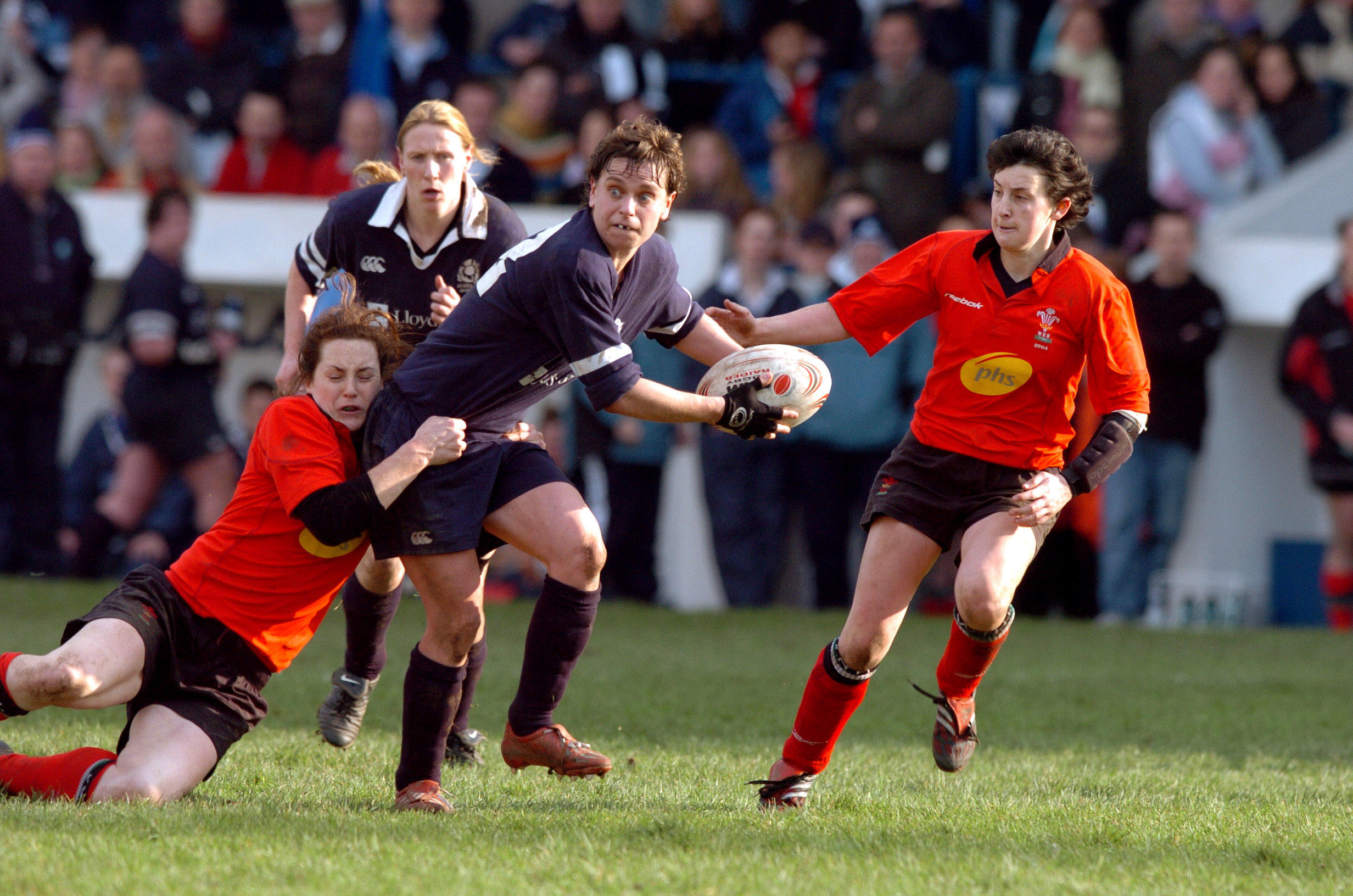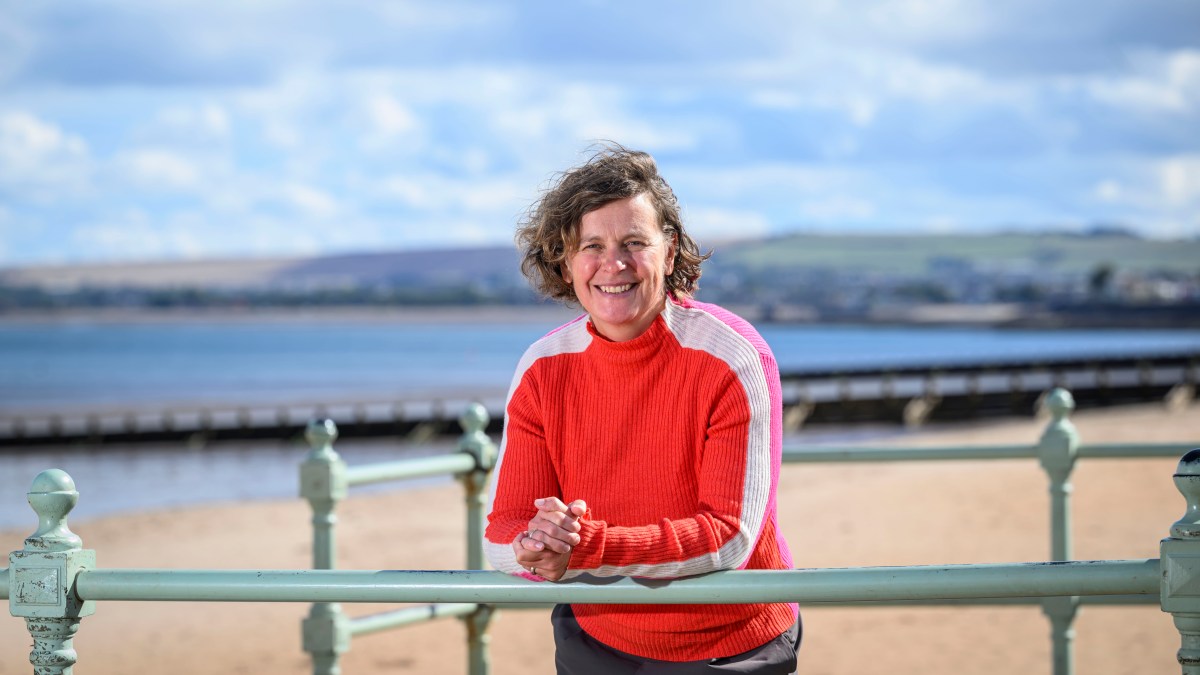The last time Scotland’s women beat England was in April 1999 to claim third place in that year’s European Championship. The venue was Belluno, a picturesque town in northeast Italy which serves as a gateway to the Dolomites.
When it comes to climbing mountains, the 10,968-foot Marmolada (known as the “Queen of the Dolomites”) has nothing on the scale of the challenge facing Bryan Easson’s side in Bristol on Sunday.
To call England overwhelming favourites for the World Cup quarter-final at Ashton Gate would be to grossly undersell the gulf in expectation between the teams, one borne of an average winning margin of close to 50 points in the Red Roses’ favour in the ten most recent meetings.
While the Scots have performed with distinction over the past few weeks, defeating Wales and Fiji then recovering from a slow start to finish with respectability against Canada, denying the tournament hosts a place in the last four would be akin to Leicester City sealing the Premier League title while Buster Douglas knocks out prime Mike Tyson on the touchline.
“Crazy things can happen, you just never know,” says Rhona Shepherd, the wing/centre who was coming to the fore in 1999 and whose older sister Alix had been part of the set-up the previous year in the wake of Scotland have clinched their only grand slam by beating England at Inverleith, their sole other success in 34 head-to-heads.
“There’s certainly zero pressure on Scotland. Both the previous victories against England came at a time when England were viewed as the absolute dominant force in world rugby; no chance should we have had a hope in hell. And yet in ’98 they did it and in ’99 we did it again, in moments when England were way, way more professional than us.
“They had a team many of whom were choosing to work part-time. They were struggling with money like the rest of us, but they were just going after it. There’s no way we should have won either of those games and yet we did.
“The stats are low [when it comes to Scotland’s chances of winning] but jeez, we could give them a fright. We can throw the kitchen sink at it and see what happens. For me, if it ended up a 40-20 kind of game like Canada, they could be phenomenally proud of it.
“But you only get 40-20 if you go out to try to win. You’ve got to believe that you can, fundamentally. That’s the starting point. You’ve got to dare to dream, and this team have legitimately earned the right to. There’s a tenacity to this group and if they can bring all of that out in one game…Take away the nerves that I think got in the way in the first 20 minutes against Canada, believe you are good enough and go for it.”
In Shepherd’s memories of 1999, it is the character and cohesion, rather than any technical quality, which stand out.
“So much tenacity and resilience,” she recalls. “I was on the bench initially, and I remember being in awe, just in awe, of the level of commitment to the collision. We didn’t have the perfect tactical game but my word did we back each other, even through a bit of gobbiness; good old-fashioned sledging from Kim Littlejohn and Donna Kennedy. It was that sense of, ‘we’re here, we’ve already beaten you and we’re going to beat you again’. It was brilliant.”
For the past 22 years, Shepherd has run Red Sky Management with her older brother Rowen, who himself won 20 Scotland caps from full back. The agency has managed any number of the country’s leading rugby players and Olympians, specialising in helping them transition to business careers post-sport. Shepherd, a performance coach, leverages insights gleaned from sport to benefit business leaders.
In conversation the other day with Jack Carlin, the Paisley-born track cyclist who won four Olympic medals, she heard something which she believes can be a guiding principle for the Scots today.
“Jack told me he’d had a brilliant meeting with a business person who said, ‘when you get to thinking about what’s next, just stop being so bloody Scottish. Stop being so humble. You need to learn to shout about your achievements’. Maybe that’s what the team need to do on Sunday. Don’t be so bloody Scottish. You all hold down starting positions in the premiership in England. You’re there on merit, now go and do it. No fear, no pressure, just perform.”

Shepherd played in the 2002 and 2006 World Cups
ALAMY
Shepherd — who helps run a well-regarded youth rugby project in Portobello — was part of the team which finished sixth at the 2002 and 2006 World Cups in an era when the tournament split into a series of knockouts based on pool-stage placings.
“It was just ferocious,” she says. “You played five games in two weeks and by the time you got to the last one, it was a case of, ‘who is least injured?’ There was nobody who wasn’t at least partially injured. You’re physically and emotionally broken.
“I remember finishing and for a very long time not looking back on my playing career with fond memories. Everything was a fight: you fought to play, to get picked, those kind of natural fights. You were then fighting all the time to explain why, as a woman, you were playing rugby; to get enough funding; to have enough holidays to take time off; to have enough money to pay for your trip — you were often having to contribute some of the money yourself or find a sponsor. There was always pressure and it was all very fraught.
“My thinking changed when I met a lot of this generation before they went to the last World Cup in New Zealand. Their gratitude for us having that fight and building the stage — nobody was watching us but we were still on the stage, we were still building it. I felt a lot of pride hearing that and understanding that we have actually contributed something. It was their gratitude which gave the pride in what we had done.
“Watching them now, I’m just in awe. They’ve completely changed the narrative around women’s rugby, while having to handle pressures that just weren’t there when we played, like all the media attention and the pitfalls of social media. The team I played in have a Whatsapp group and everybody on there is just so proud. We love what these women are doing and they have our unconditional support.”
Alas, it is not all sunshine and roses, red ones or otherwise. Scotland’s efforts at this World Cup have been even more impressive given the backdrop of Easson’s post-tournament departure having been announced before they even set off, while running battles have had to be fought with the Scottish Rugby Union over the nature and number of contracts available under an ill-conceived plan to repatriate talent from the English club game to play in the nascent Celtic Challenge.
“I’m so impressed by how they’ve managed to park all that stuff and focus in on the rugby,” Shepherd says. “It speaks volumes for [the captain] Rachel Malcolm and the other leaders and it would be amazing if, on Sunday, we could see this group at the height of their powers, playing with true freedom. Sometimes we’re playing with maybe a little element of fear. I don’t know if this group have had a chance to play with freedom in the way that I’d love to see against England. It would be powerful, so powerful.
“The truth is that they could come home today having decided, ‘right we’ll just concede the game’. Everybody would still say they’ve done brilliantly. But what an opportunity to do something that would be remembered forever. Everyone knows how the game is expected to go, but this Scotland team will be saying, ‘bring it on’.”
England v Scotland
Rugby World Cup quarter-final. Ashton Gate
Sunday, 4pm
TV BBC1
